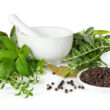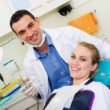There are many different sexually transmitted diseases (STDs) around, and one of the most common one is genital herpes. Just like any other STDs, it can be passed from one person to the other though unprotected sexual activities. There is no known cure for genital herpes, although it is possible for the symptoms to be managed through medical treatments.
Once you have the virus behind this STD, it will stay with your for the rest of your life. This does not mean, however, that you will constantly encounter the common signs and symptoms of genital herpes. Needless to say, you may easily infect others you have sex with even without the presence of signs and symptoms.
The Cause of Genital Herpes
The herpes simplex virus is what causes genital herpes. It is highly contagious that it can easily get passed from person to person through sex — vaginal, anal and oral. There are a couple of kinds of the herpes simplex virus: type 1 or HSV-1 and type 2 or HSV-2. Either of them can cause genital herpes.
Mode of Transmission
The herpes simplex virus targets the mucous membranes, which are tissues that are soft such as the kinds found in the mouth, vagina and anus. When it is present on a mucous membrane, it can be easily passed on to another person by means of his or her mucous membrane coming into contact with that of an uninfected individual.
Needless to say, engaging in sexual activities such as vaginal, anal and oral can cause you to be infected with genital herpes. Usually, it cannot be spread by using the towel, pillow or cup of someone with the herpes simplex virus.
Genital Herpes Signs and Symptoms
When you get infected with the herpes simplex virus for the first time, you may not encounter any sign and symptom. This keeps you from knowing that you are infected with the virus and already a carrier of it, and you may infect others through sexual contact. Sometimes it may take several months or years before the signs and symptoms show up. However, they may also appear anywhere from 4 to 7 days after getting infected.
Some of the signs and symptoms of genital herpes include:
- Small blisters on the genitals, around the anus and even on the thighs and buttocks. When they burst, they become open sores. They tend to heal after several days and leave no scar behind.
- Body malaise. You may feel like you are going down with the flu, usually accompanied by aches and pain.
- Painful urination. You may feel some discomfort when urinating.
- Vaginal discharge. If you’re a woman, you may notice discharge coming from the vagina.
All of these symptoms are said to last for about 20 days. Afterwards, they all clear up. However, this does not mean that the herpes simplex virus is already gone. In fact, it may get activated once in a while, causing you to experience the signs and symptoms once again, although less severe and shorter than the first time they appeared.
Recurrence Triggers
No one really knows why the herpes simplex virus gets reactivated. Experts believe that it can be caused by friction in the genital area while you’re engaging in sex. Other things that may cause the recurrence of the signs and symptoms of having genital herpes include: stress, too much alcohol consumption and a weakened immune system.
Genital Herpes Diagnosis and Treatment
The best time to get tested is when there are signs and symptoms present. A doctor will collect sample fluid from the blister and will have it sent to a laboratory for testing. You will also be asked a few questions about your sexual history and partners, as well as matters about having other STDs or the same signs and symptoms in the past.
Unfortunately, there is no treatment for genital herpes. During the initial infection, a doctor may provide an antiviral medication. This will keep the herpes simplex virus from multiplying, but it will not completely eradicate the virus. During reactivations, there are home remedies that may be done to ease the symptoms. They include applying ice pack on the blisters, drinking plenty of water to make urination less painful, and wearing loose clothing.













